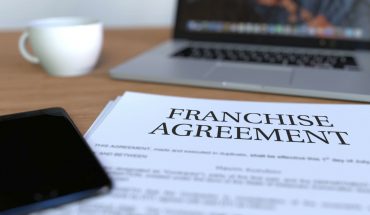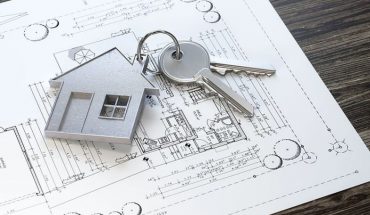Domestic Building Dispute Resolution Victoria – the process explained
- 1 Jul 2020
- Download PDF
Due to reforms introduced by the Building Legislation Amendment (Consumer Protection) Act 2016 (Vic), domestic building disputes must now proceed through Domestic Building Dispute Resolution Victoria (DBDRV).
The Chief Dispute Resolution Officer (CDRO) appointed to DBDRV is responsible for the management of its services and is supported by Dispute Resolution Officers and inhouse expert assessors.
The objective of DBDRV is to conciliate and attempt to resolve domestic building disputes without the need to resort to expensive and time-consuming litigation. The services are available to parties involved in a residential building dispute – owners, builders and in some instances, architects and sub-contractors.
This article sets out the process for applying for dispute resolution and attending conciliation through the DBDRV.
Applying for dispute resolution
Dispute resolution is mandatory. Apart from applications for injunctive relief, a domestic building dispute must progress through the conciliation process offered by DBDRV before proceeding to the Victorian Civil and Administrative Tribunal (VCAT) or to Court. Before applying to DBDRV the parties to a domestic building dispute should have taken reasonable steps to resolve the matter. If genuine steps are not taken, applications may be refused. The aggrieved party should notify the other party in writing, clearly identifying the issue and providing sufficient time for that party to respond or to carry out agreed actions. The aggrieved party should also state the intention to refer the matter to DBDRV if it remains unresolved.
Applications are made online through the DBDRV website. Applicants will need to provide their contact details, the other party’s details, the building address and a basic description of the type of dispute.
A reference number is provided once the application is submitted. There is no fee charged for dispute resolution services and only in limited cases, will a fee be charged for a technical assessment.
Presently, the allocation of a conciliation conference with the DBDRV takes between three and six months. Accordingly, it is important to refer a disputed matter without undue delay. Assessment for conciliation A Dispute Resolution Officer will assess whether the type of dispute is covered by the service and if it is suitable for conciliation. The officer will speak to the parties involved and consider the steps taken by the applicant to resolve the dispute before applying for conciliation.
If the matter is assessed as unsuitable, a Certificate of Conciliation is issued giving reasons why the dispute is not suitable for conciliation. The parties may then apply to have the matter determined by VCAT or proceed through other means. Before the conciliation conference
If the referral proceeds to conciliation, the Dispute Resolution Officer advises the parties by telephone and the next steps are discussed. It is possible to resolve the matter at this early stage in which case a record of agreement will be made and the matter finalised. Otherwise, the matter will proceed to a conciliation conference.
Prior to the conciliation, the parties will need to provide copies of the relevant building contract, plans and specifications, building permit, architectural and engineering drawings, inspection reports, variation requests and correspondence between the parties.
An independent building expert (Assessor) may be retained to assess if building works are defective and, if so, recommend rectification works and a timeframe within which to carry out the works. The Assessor may request information or assistance from third parties at a building site and order invasive or destructive testing of building works in dispute.
Any contraventions of the Building Act 1993 (Vic) or regulations will be noted and reported to the Victorian Building Authority. At the conciliation conference
The conciliation conference is facilitated by the Dispute Resolution Officer and may be held face-to-face at the offices of DBDRV, at the building site, by teleconference or video link. The parties with authority to resolve the dispute must attend. Requests to have legal representation or a support person attend are considered on a case-by-case basis.
The Dispute Resolution Officer’s role is to assist the parties in understanding the issues in dispute and to encourage them to find ways to resolve the matter.
The outcome of the conciliation may result in an agreement, an adjournment giving the parties time to obtain further information, the issue of a Dispute Resolution Order (DRO) or the issue of a Certificate of Conciliation.
If the matter is resolved, the terms agreed are documented in a record of agreement setting out the outcomes negotiated and the actions that the parties must take to finalise the matter, such as fixing defective work or making a payment. The agreement, signed by the parties, provides a timeframe within which the respective obligations must be carried out.
If the matter remains unresolved a Certificate of Conciliation is issued and the parties may proceed to apply to have the matter determined by VCAT.
Unless agreed, statements made by the parties during the conciliation are not admissible as evidence in subsequent VCAT or Court proceedings. Reports provided by an Assessor are admissible as are written records from the Dispute Resolution Officer to the parties, and documents disclosed in determining to make a DRO.
Dispute Resolution Orders
If the matter is unresolved or only partially resolved, the CDRO may issue a DRO against one or more party.
A DRO is a binding order and may require a builder to rectify or complete building works in accordance with a contract or to pay the reasonable costs for building carried out by a registered builder (where it would be impractical to allow the defective work to be rectified by the original builder).
Builders who breach a DRO may face disciplinary action. If the DRO relates to defective or incomplete work by a builder who failed to attend conciliation, an order to pay for the Assessor’s report may also be made.
A DRO may require a home owner to pay for building services provided under the domestic building contract, to deposit funds into a DBDRV trust fund, or refrain from doing anything that would prevent a builder from complying with a contract or warranty. A DRO may also conclude that the building work disputed is not defective nor incomplete.
Domestic building dispute resolution at a glance
1. Consider whether your matter is eligible to be referred to DBDRV – the dispute must relate to residential building work that is not more than 10 years old, include an owner as one of the parties, and not have previously been or be subject to VCAT proceedings.
2. Make genuine attempts to resolve the dispute with the relevant parties and ensure you notify the other party of your intention to refer the matter to DBDRV if it is not resolved.
3. Apply for conciliation online through the DBDRV website – a Dispute Resolution Officer will assess the matter and if suitable, arrange the conciliation.
4. Prepare for conciliation – a Dispute Resolution Officer will contact each party, provide details of the conciliation conference and request copies of documentation relating to the dispute. An Assessor may be appointed to provide an expert report.
5. Attend conciliation – if the matter resolves a record of agreement is prepared. If the matter is not resolved or only partially resolved, then a DRO may issue. Alternatively, a Certificate of Conciliation is issued and the parties may proceed through VCAT or other processes.
Conclusion
Domestic building disputes can be complex and, if not resolved quickly, exhaust considerable time and expense.
If you have a domestic building dispute that is not resolved through DBDRV or you require advice or representation regarding your dispute an experienced construction lawyer can assist by identifying the issues and advising on the available options. Our firm has been involved in a number of domestic building disputes and concluded settlements and hearings on behalf of builders and owners, including various matters through the new DBDRV conciliation process.
If you need more information or if you need assistance or advice on how to proceed please call us on 03 9387 2424 or email info@rrrlawyers.com.au.
Posted in: Building & Construction Law,
Following the breakdown of a marriage or de facto relationship, i...
This might seem a basic question but so many people simply do not...
Unfair dismissal matters can be complex and frustrating for both ...
The purchase of a home is arguably one of the most important purc...
There have been updates in the law regarding disclosure requireme...
When renting business related property it is important for both L...
Maintaining cash flow is essential to any business. Writing off d...
We often receive instructions after family court orders have been...
In this issue, we wish to introduce and outline an area of law of...
Do you have a friend or relative who has just separated? ...
How to get legal help for a victim of family violence? ...
Most people think that if a person is charged by the Police or Au...
A Power of Attorney is a legal document that gives a trusted pers...
It is often stated that the purchase of a house is the largest in...
The Fair Work Commission has powers to make anti-bullying orders ...
Introduction Mr. Prakash Raniga and his team have acted...
Buying a franchise is a good way to share in the success of a wel...
There has been an upswing in media reportage of domestic violence...
The team at RRR Lawyers specialise in assisting those who are pur...
You are required to enter into a major domestic building contract...
Things you need to know BEFORE the auction day Buying a...
Relationship difficulties and breakdowns are a sad reality of mod...
While many people are unlikely to nominate estate planning aka �...
Australia is a multi-cultural society, one of the most ethnically...
Body art such as tattooing and piercing has enjoyed popularity ov...
If you are a grandparent and face the sad circumstance of a break...
When starting a legal case, you must ‘serve’ the party agains...
Due to reforms introduced by the Building Legislation Amendment (...
The 2017/2018 Victorian Budget has made substantial changes to la...
The Building Legislation Amendment (Consumer Protection) Act 2016...
It is well known that a Will is a legal document which sets out h...
Social media – Facebook, Instagram, Twitter, Snapchat and the l...
Claims can be made for further provision from a deceased estate i...
Unlike married couples, de facto partners cannot apply for a divo...
GST and Residential Property Transactions The...
It is important for everyone over 18 to have a will to make sure ...
The new Powers of Attorney Act 2014 (Vic) commenced on 1 Septembe...
In one famous case, marriage is described as “the union of a ma...
Many migrants do not have relatives in this country beyond their ...










































